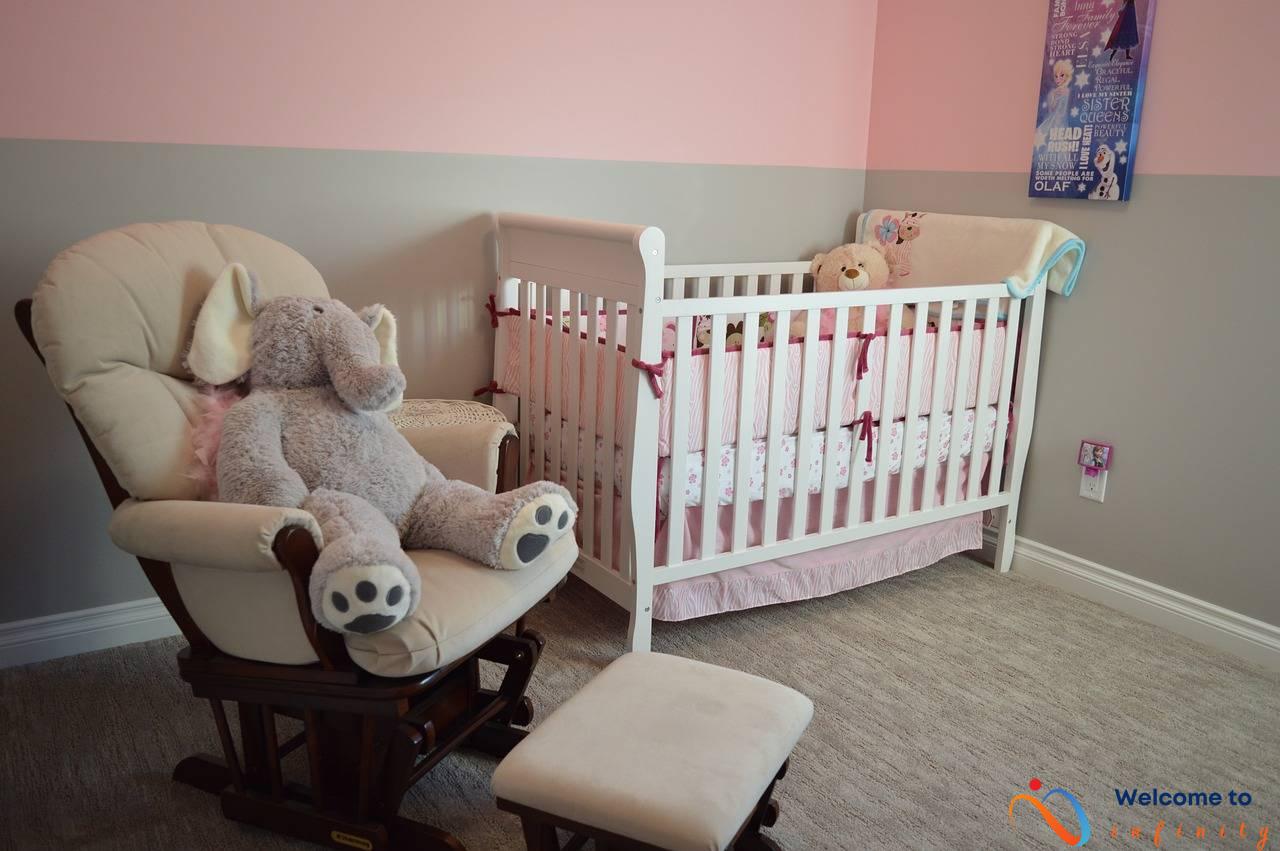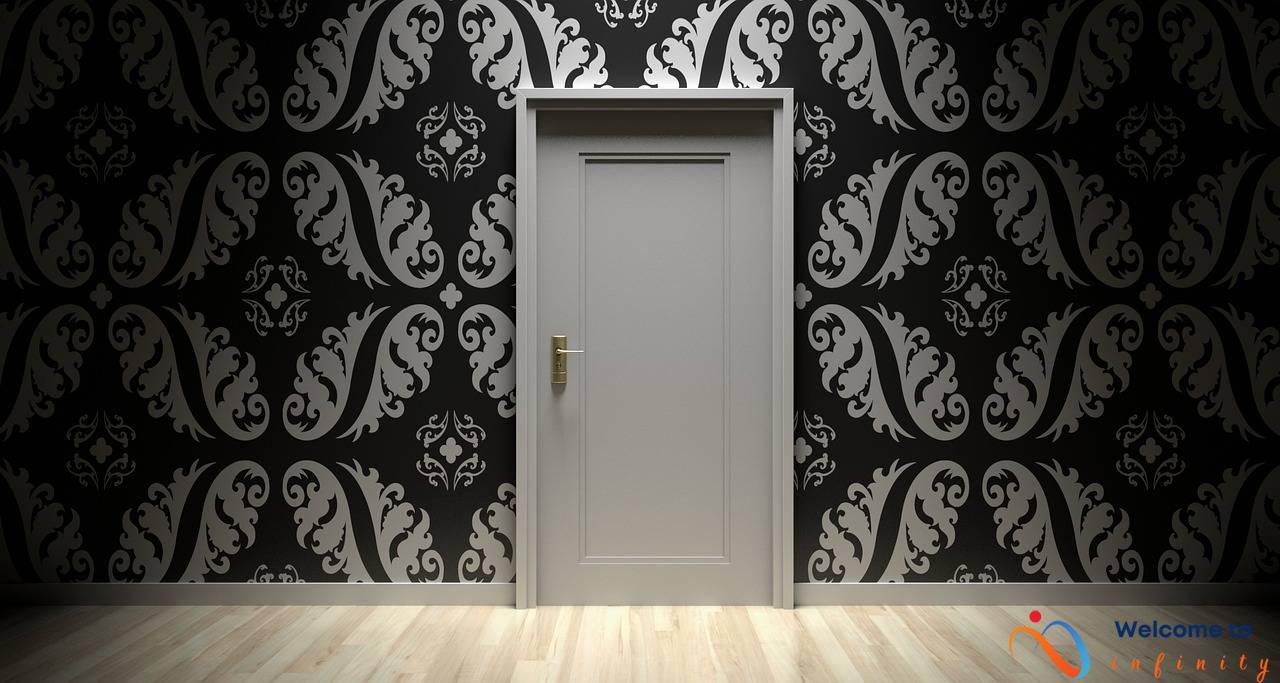Meditation is rapidly gaining popularity as a way to relieve stress and anxiety, improve sleep, and enhance focus and productivity. Along with these benefits, meditating in the comfort of your own bedroom can provide even greater benefits.
The bedroom is often the most personal and intimate space in the house, making it an ideal place to practice meditation. By setting up a calming and comfortable meditation space in your bedroom, you can create a tranquil environment that promotes relaxation and inner peace.
Moreover, meditating in your bedroom has the added advantage of privacy and convenience. You do not have to travel anywhere or worry about being interrupted by others, giving you complete control over your meditation practice.
Whether you are a seasoned meditator or just starting out, meditating in your bedroom can enhance the benefits of meditation and allow you to enjoy a deeper sense of calm and well-being.
Creating a Relaxing Meditation Space
Meditation is a great way to reduce stress and promote relaxation. To maximize the benefits of your meditation practice, it's important to create a relaxing space where you can focus and let go of distractions. Your bedroom can be the perfect place to do this. Here are some tips to help you create a calming and comfortable meditation space in your bedroom:
- Choose the right lighting: Soft, warm lighting can help create a calming ambiance. Avoid bright, harsh light that can be distracting.
- Decorate mindfully: Choose decor that promotes a sense of calm and relaxation. Consider adding plants, nature-inspired art, or calming colors to your space.
- Incorporate essential oils: Essential oils can help create a soothing environment. Try lavender or chamomile to promote relaxation and stress relief.
- Create a comfortable seating area: Choose seating that's comfortable and supports good posture. Consider using cushions or pillows to make your space more comfortable.
- Avoid distractions: Make sure your space is free of clutter and distractions. Turn off your phone and other electronic devices to help you focus.
Creating a comfortable and calming meditation space in your bedroom can help you get the most out of your practice. By incorporating these tips, you can create a space that promotes relaxation and helps you achieve a sense of inner peace and tranquility.
The Benefits of Practicing in Your Bedroom
There are numerous benefits to practicing meditation in the comfort of your own bedroom. One of the most notable benefits is better sleep. Meditating in your bedroom before bedtime can help improve the quality and duration of your sleep. By calming the mind and reducing stress, meditation can help prepare your body for a more restful night's sleep.
Moreover, practicing meditation in your bedroom can also lead to great stress relief. Incorporating meditation into your bedtime routine can help lower stress levels and promote relaxation, making it easier to drift off to sleep and stay asleep throughout the night. It can also help you manage stress during waking hours, keeping you more calm and centered amidst the chaos of daily life.
Another benefit of meditating in your bedroom is a more focused mind. When practiced regularly, meditation can increase your ability to focus and become more productive during the day. By clearing your mind and increasing your awareness, meditation can help you stay on task and accomplish more in less time.
Overall, meditating in your bedroom can be an excellent way to enhance both your physical and mental health. It can lead to better sleep, stress relief, and a more focused mind, making it an incredibly rewarding and worthwhile practice to incorporate into your daily routine.
Better Sleep
Meditating before bedtime has been shown to improve sleep quality and duration. When done in your bedroom, meditation can help create a calm and peaceful environment that is conducive to sleep. By reducing stress and anxiety levels, meditation can help quiet the mind and promote relaxation, which can lead to better sleep.
One study found that incorporating meditation into a nightly routine improved sleep quality and reduced the time it took to fall asleep. In addition, participants reported feeling more rested and energized upon waking up in the morning.
To create the ideal environment for bedroom meditation, consider using soft lighting and relaxing aromas such as lavender essential oil. You may also want to try using a guided meditation to help ease you into a more relaxed state before bedtime.
- Dim the lights
- Use essential oils
- Consider a guided meditation
Incorporating meditation into your bedtime routine can have a significant impact on your overall well-being. By creating a peaceful environment, reducing stress and anxiety levels, and promoting relaxation, you may be able to achieve a more restful and restorative night's sleep.
Reduced Stress
Meditation has been shown to be an effective way to reduce stress levels and promote relaxation. By incorporating meditation into your bedtime routine, you can help lower your stress levels and prepare your mind and body for a restful night's sleep. Meditation can help you let go of any negative thoughts or worries from the day, allowing you to relax and unwind before bed.
Studies have shown that regular meditation practice can help reduce levels of the stress hormone cortisol, which can have a negative impact on both physical and mental health if not kept under control. By reducing cortisol levels, meditation can help improve overall well-being and help manage stress more effectively.
When meditating in your bedroom before bed, it's important to create a quiet and calming space without any distractions. Use essential oils or candles to create a relaxing scent, dim the lights to create a peaceful atmosphere, and sit or lie down in a comfortable position. Focus on your breath and let go of any thoughts or worries that come to mind, allowing your mind and body to fully relax.
- Dim the lights and create a peaceful atmosphere in your bedroom
- Use essential oils or candles to create a relaxing scent
- Focus on your breath and let go of any negative thoughts or worries from the day
Incorporating meditation into your bedtime routine can not only help reduce stress levels, but it can also lead to better sleep quality and duration, making it a valuable addition to your overall health and well-being.
Improved Focus
Meditation is a great way to improve focus and concentration, and practicing it in your bedroom can be particularly beneficial. By meditating in your own personal space, you can create a calm and comfortable environment that helps you to clear your mind and sharpen your focus.
One of the main benefits of meditating in the morning or before starting your workday is that it can help you to be more focused and productive throughout the day. When you take the time to calm your mind and focus on your breath, you train your brain to let go of distracting thoughts and improve your powers of concentration.
If you find yourself easily distracted during the day, taking a few minutes to meditate in your bedroom can help you to regain your focus. By practicing regularly, you can train your brain to stay focused for longer periods of time, which can make a significant difference in your work and personal life.
To enhance your focus even further, consider using essential oils like peppermint or eucalyptus. These oils are known for their ability to improve concentration and clarity while reducing stress and anxiety. Simply diffuse them in your bedroom during your meditation practice, or apply them directly to your skin for an added boost.
Overall, meditating in your bedroom can help you to improve your focus and concentration, leading to a more productive and satisfying life. By creating a calm and comfortable environment and practicing regularly, you can reap the many benefits of this ancient practice.
Personalizing Your Practice
One of the wonderful things about practicing meditation in your bedroom is that you have complete control over the environment. This means that you can personalize your meditation experience and make it uniquely yours. Here are a few ways to personalize your practice:
- Choose a time of day that works best for you. Everyone's schedule is different, so choose a time when you are most likely to stick to your meditation practice.
- Pick a spot in your bedroom that feels comfortable and calming. This could be a corner of the room with a cozy chair or a cushion on the floor.
- Set the ambiance with lighting and decor that promotes relaxation. Soft lighting, calming colors, and nature-inspired decor can all help set the mood.
- Select essential oils that promote relaxation and calmness. Diffuse lavender, chamomile, or bergamot to help enhance your meditation practice.
- Incorporate gentle movements or stretching into your practice. This can help calm your mind and prepare your body for stillness.
Remember, meditation is a personal practice, so don't be afraid to experiment and find what works best for you. By personalizing your meditation practice in your bedroom, you can create a space for relaxation, inner peace, and self-discovery.
Getting Started with Bedroom Meditation
If you're new to meditation or want to start practicing in your bedroom, there are a few helpful tips and resources to get you started. First, find a comfortable and quiet space in your room where you can sit or lie down without any disturbances. Set a timer for your desired meditation time, whether it be 5 minutes or 30 minutes, and try to stick to that time consistently each day.
Next, consider incorporating essential oils and calming decor into your meditation space. Lavender and chamomile scents are known for their relaxation properties, and adding some plants, candles, or soft lighting can also enhance the calming atmosphere.
If you're struggling to stay focused during your meditation practice, try some guided meditations. There are countless apps and online resources available that offer guided meditations for free or at a low cost. Experiment with different types of guided meditations, such as body scans, mantra meditations, or mindfulness meditations, to find what works best for you and your bedroom meditation practice.
- Find a comfortable and quiet space in your room
- Set a timer for your desired meditation time
- Incorporate essential oils and calming decor into your meditation space
- Experiment with different types of guided meditations
Lastly, don't get discouraged if your mind wanders or if you don't feel the benefits of meditation right away. Consistency is key, and it takes time to develop a solid meditation practice. Keep trying and adjusting your routine until you find what works best for you and your bedroom meditation practice.
Setting Goals and Intentions
One of the most important aspects of a successful meditation practice is setting goals and intentions. This means deciding what you want to achieve or focus on during your meditation sessions. It can be helpful to write down these goals and intentions in a journal or notebook dedicated to your meditation practice.
Setting goals and intentions allows you to have a clear purpose for your meditation practice. It can help you stay motivated and accountable, and give you something to work towards. Some common goals for meditation include reducing stress and anxiety, increasing focus and productivity, and improving overall well-being.
When setting goals and intentions for your meditation practice, it's important to be specific and realistic. Instead of setting a vague goal like “be less stressed,” try setting a specific goal like “reduce stress by 50% within the next month.” This way, you can track your progress and make adjustments as necessary.
In addition to setting goals, it's important to stay motivated and accountable. One way to do this is to establish a daily meditation practice. It can be helpful to set a specific time and place for your meditation practice, such as first thing in the morning or before bedtime. This way, you are more likely to make it a habit and stick to it.
Another way to stay motivated and accountable is to find a meditation community or group. This can provide support and encouragement, as well as the opportunity to share your experiences and learn from others. You can also find guided meditations online or through apps, which can help keep you focused and motivated during your practice.
Overall, setting goals and intentions for your meditation practice can help you stay focused, motivated, and accountable. By establishing a daily practice and finding ways to stay motivated, you can reap the physical and mental benefits of meditation in your bedroom.
Finding the Right Guided Meditation
Guided meditation can be a great way to start your bedroom meditation practice, especially if you're new to the practice. There are different types of guided meditations available, and finding the one that resonates with you can make all the difference.
You can find various guided meditations online or through meditation apps. Some popular apps include Headspace, Calm, and Insight Timer, which offer a wide range of guided meditations.
You can also find guided meditations based on your specific needs, such as stress relief, better sleep, or increased focus. Some guided meditations use specific techniques, such as mindfulness or visualization, to help you achieve these goals.
It's important to find a guided meditation that fits your personal preferences and needs. You can try different types of guided meditations until you find the one that resonates with you.
Keep in mind that guided meditation is a personal experience, and what works for someone else may not work for you. Don't be afraid to experiment and find what works best for you and your bedroom meditation practice.
You can also create your own guided meditation. If you're an experienced meditator and feel comfortable guiding yourself, you can record your own guided meditation using a voice recording app. This allows you to personalize your meditation practice even further.
- Types of guided meditation:
- Mindfulness meditation
- Visualization meditation
- Movement meditation
- Breathing meditation
- Loving-kindness meditation
Remember to approach your bedroom meditation practice with an open mind and heart. Implementing guided meditation into your practice can enhance the benefits of meditation and help you achieve your personal goals.












